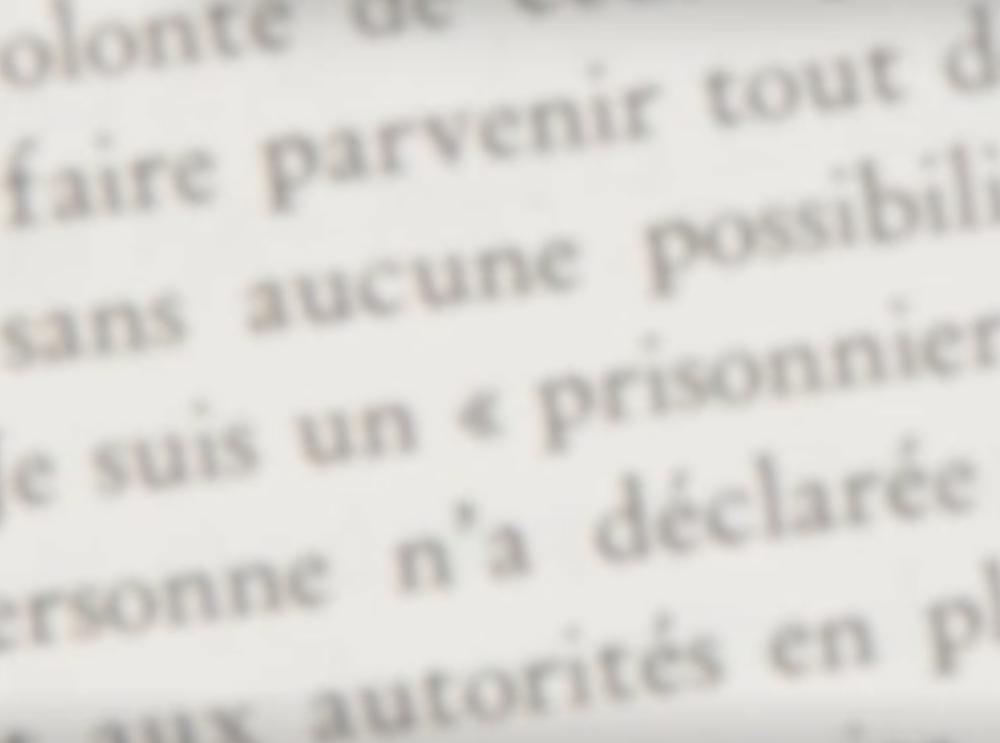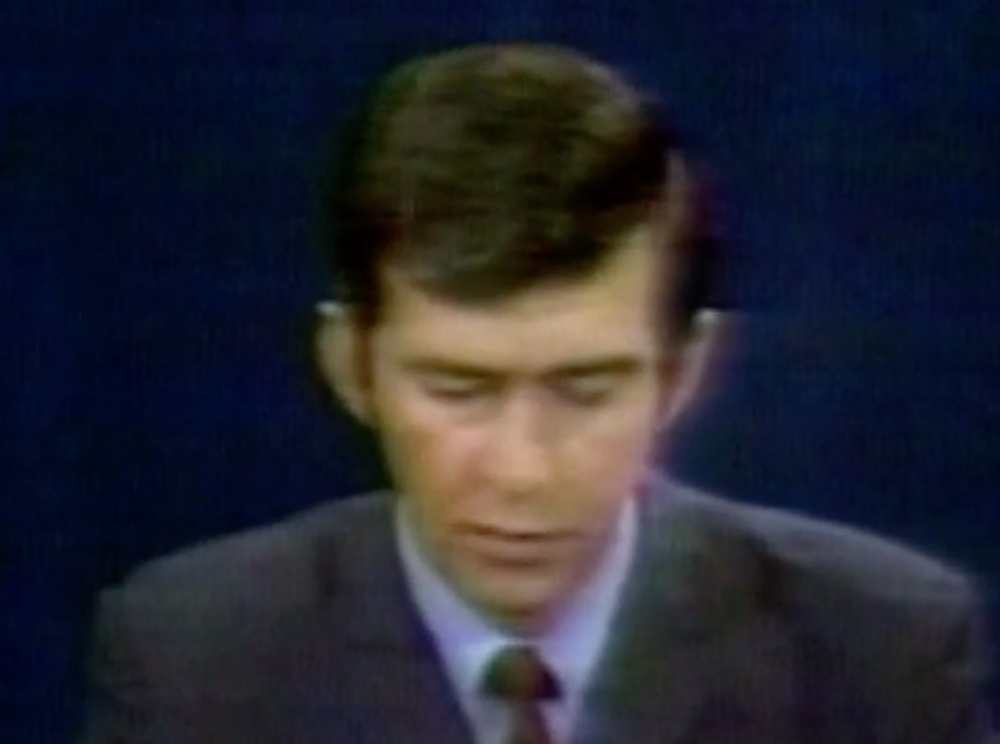
The October Crisis: Liberty Repressed
At the end of the 1960s, both Quebec and the wider world were undergoing massive upheaval — both peaceful and violent — that was rooted in a desire for change. Montréal was not immune to the social unrest. Strikes and demonstrations, often marked by violence, intensified, forcing authorities to take a harder line. People denounced capitalism, Anglo-American domination, racism, the Vietnam War and more. Mayor Jean Drapeau’s own home was bombed in September 1969.
The Front de libération du Québec (FLQ) was a movement formed in 1963. Their main goals were to secure Quebec’s independence from the rest of Canada, and to create a socialist state. Their approach was radical and violent. On February 13, 1969, an FLQ “super-bomb” injured 27 people at the Montréal Stock Exchange. By the end of 1970, the FLQ had launched more than 200 bomb attacks and stolen weapons, explosives and money. FLQ activities caused nine deaths.
In October 1970, the FLQ carried out two political kidnappings — something never before seen in North America. As a result, the federal government invoked the War Measures Act for the third time in Canadian history, and the first in peacetime.
Here is a brief timeline of key events during the October Crisis:
October 5, 1970: Kidnapping of British diplomat James Cross
October 10, 1970: Kidnapping of Quebec Cabinet Minister Pierre Laporte
October 15, 1970: Deployment of the Army in Quebec
October 16, 1970: Invocation of the War Measures Act
October 17, 1970: Death of Pierre Laporte
December 3, 1970: Release of James Cross
December 3, 1970: The Public Order (Temporary Measures) Act replaces the War Measures Act
January 4, 1971: The Army leaves Quebec
April 20, 1971: Expiry of the Public Order (Temporary Measures) Act
Governments and public opinion demanded a decisive response to the threat of the FLQ, although protesters were alarmed by the suspension of civil liberties via the War Measures Act. Although everyone lived through the same political crisis, each experience was deeply personal. Protests against war measures were forcefully expressed in Quebec by members of the young intellectual left, who were largely separatist. There were dissenting voices in anglophone Canada as well. Supporting neither the FLQ nor Quebec separatism, Anglophones nonetheless demanded that fundamental freedoms be upheld.
This topic provides an overview of different perspectives from those who lived through this period. Click on the objects below to learn more.
Objects

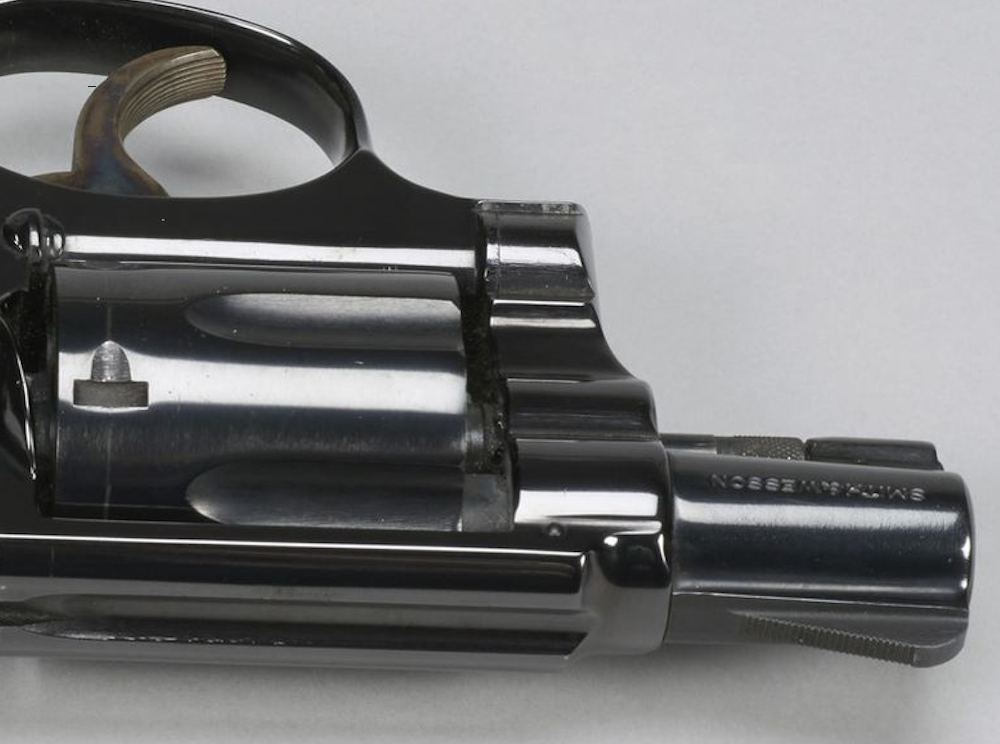
Revolver provided to lawyer Robert Demers
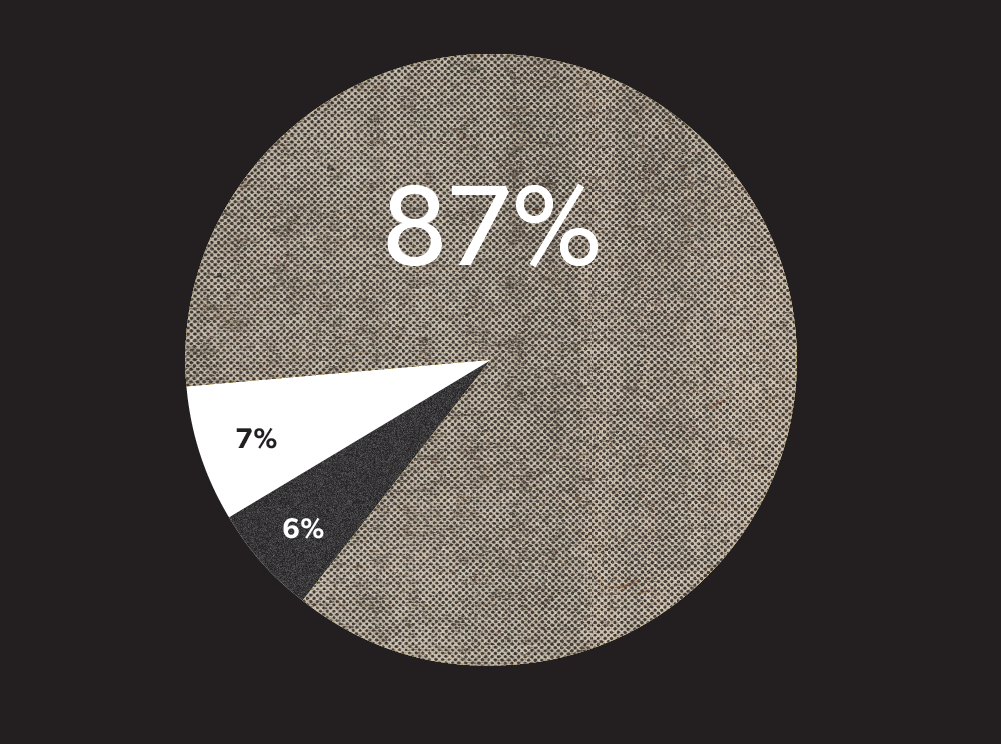
Results of a Gallup Poll
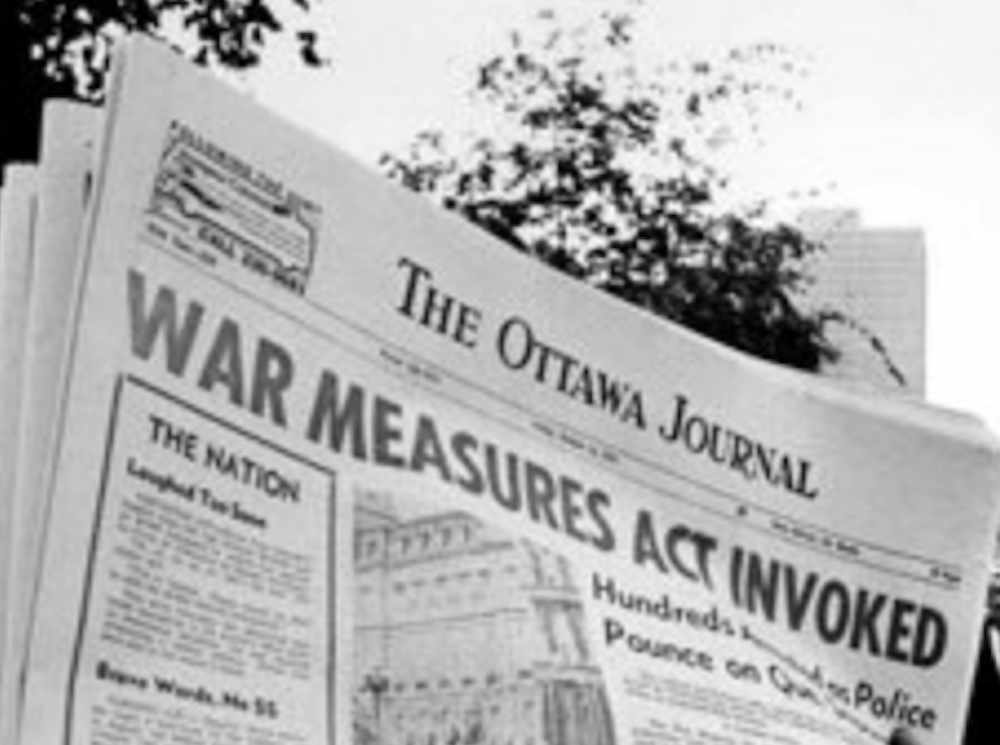
Paperboy for the Ottawa Journal announcing invocation of the War Measures Act

Ballistic Protective Helmet
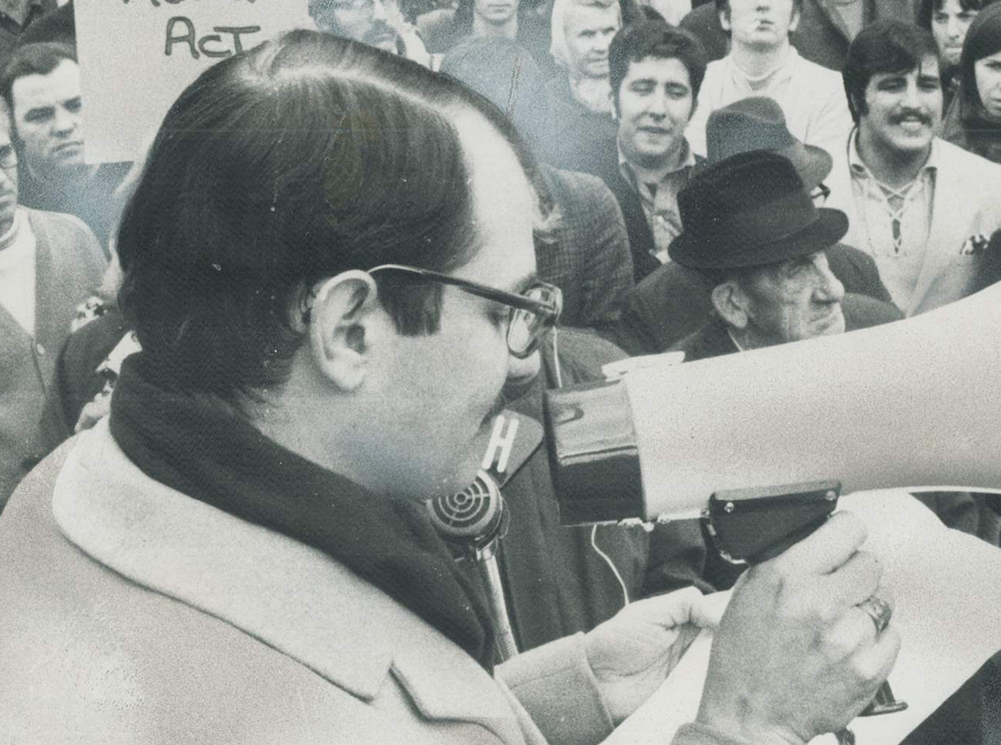
Demonstration at Toronto City Hall
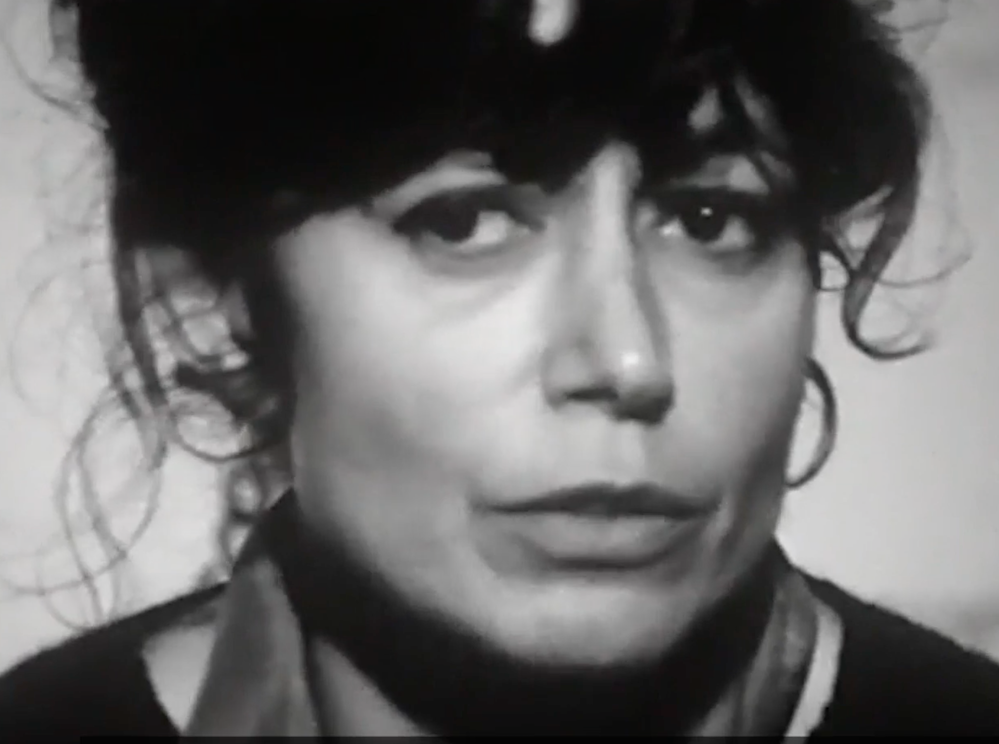
Video excerpt with Pauline Julien
